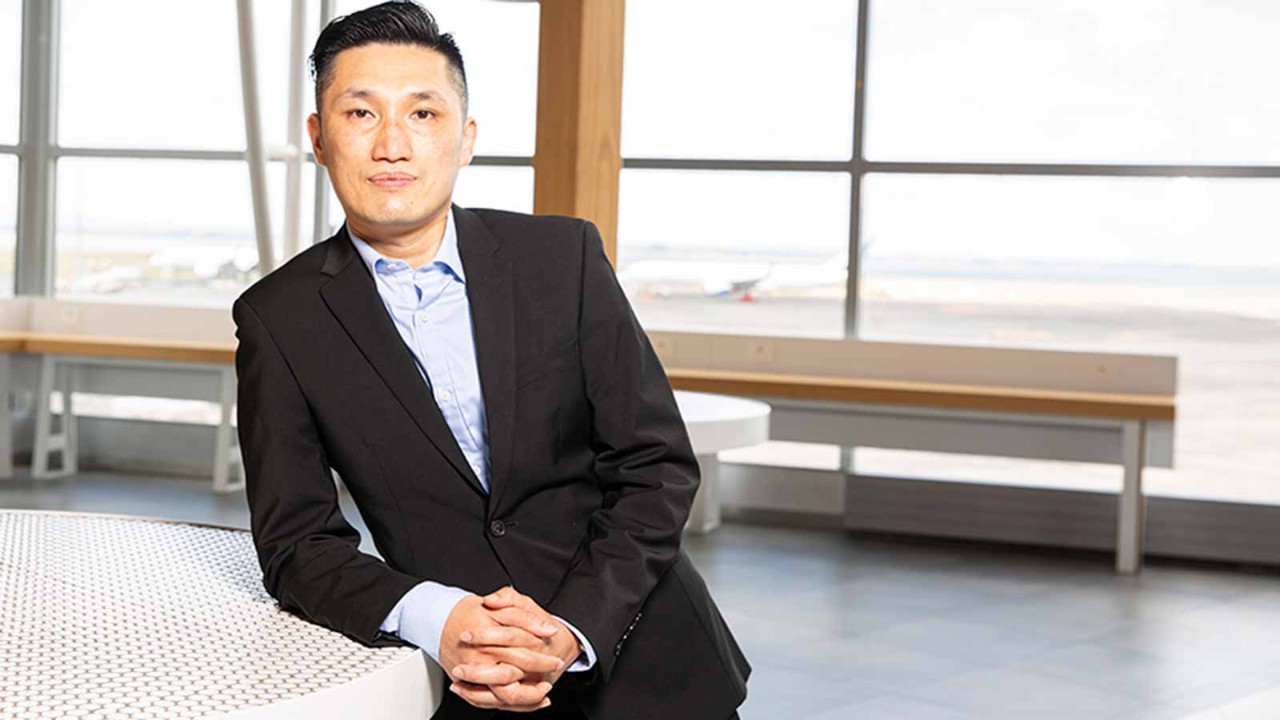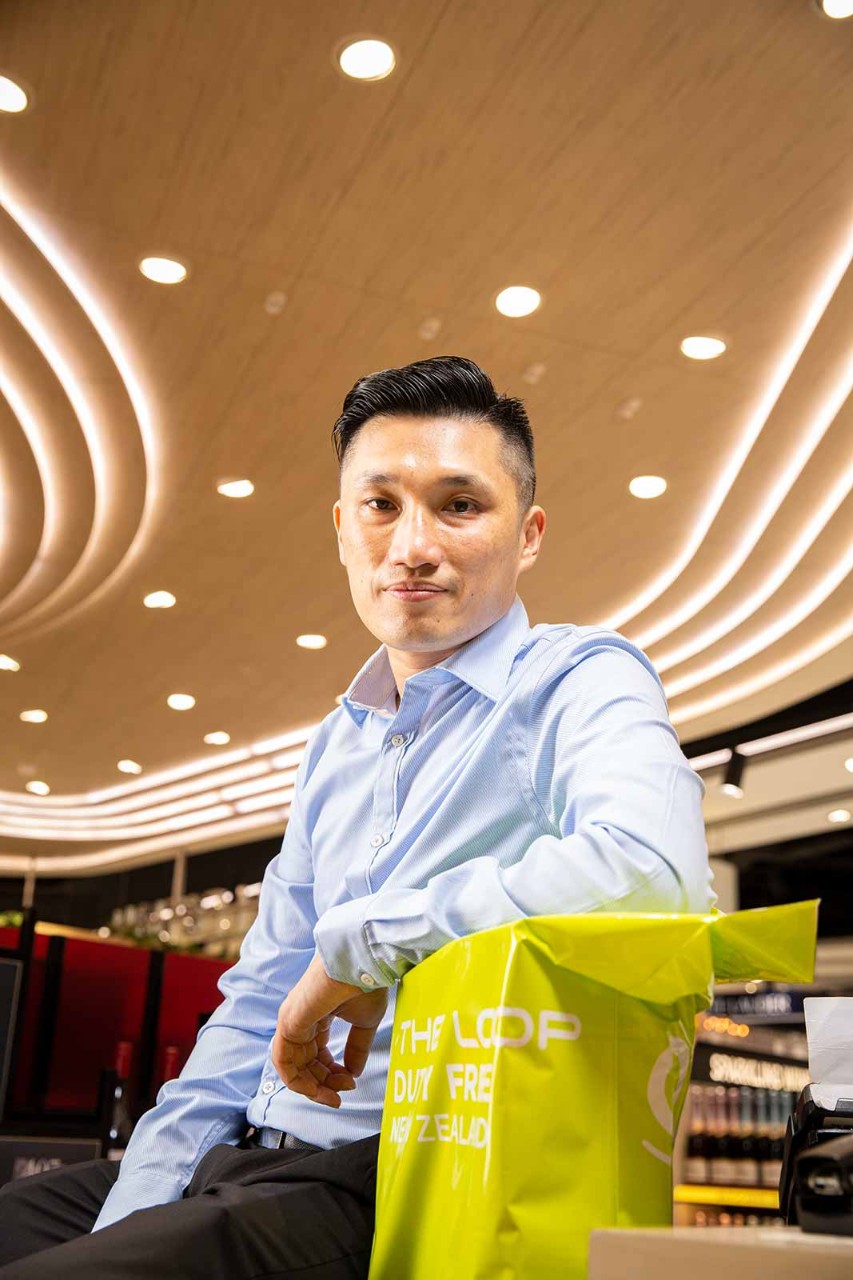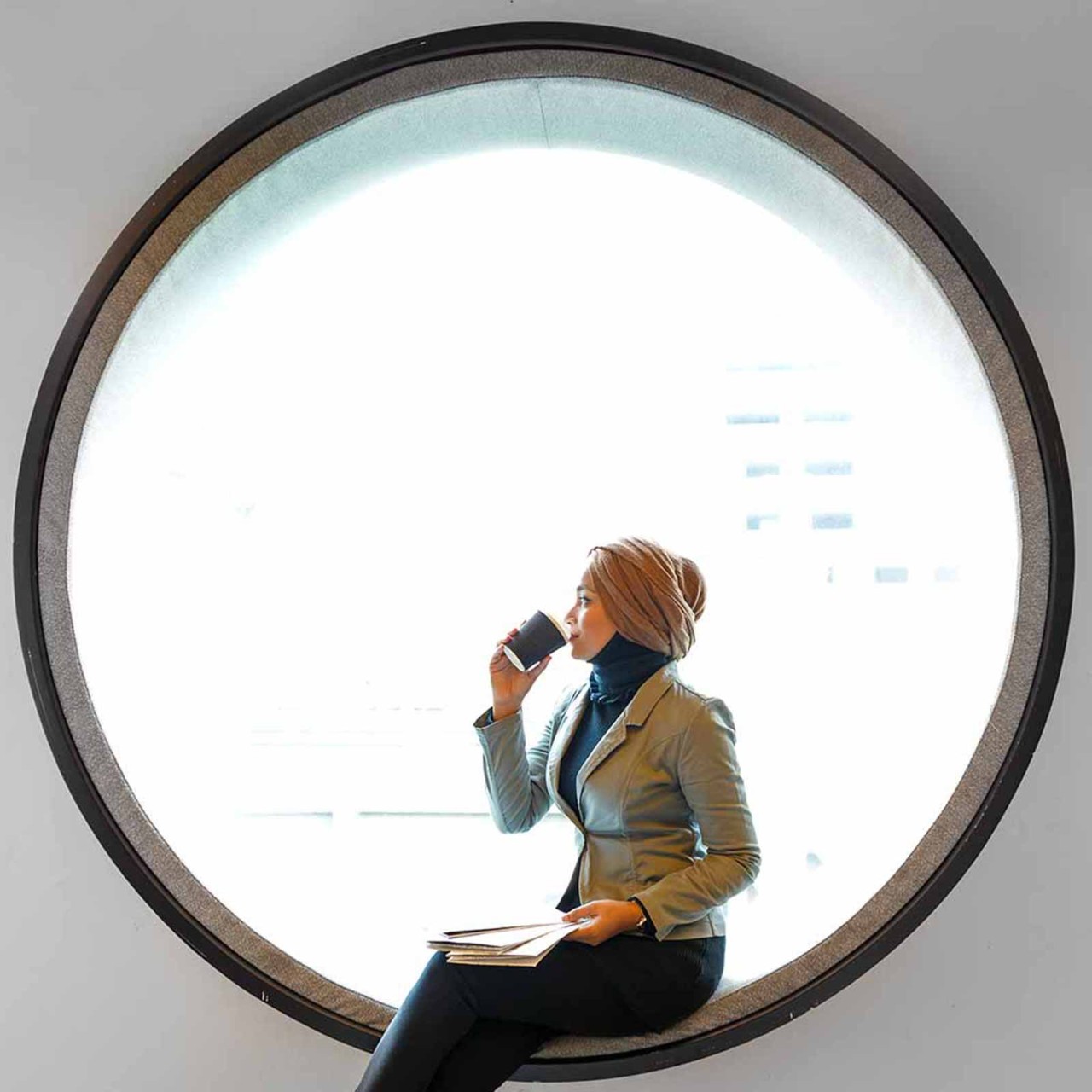
Imagine your company’s revenue collapsing overnight, with no light at the end of the tunnel.
Fwu Wren Loh FCCA was head of finance at Aer Rianta International (ARI), operator of duty-free stores at Auckland Airport, when the unthinkable happened. In March 2020, just weeks after New Zealand recorded its first case of Covid-19, the government closed the border and ordered the shuttering of all non-essential retail stores.
'It was incredibly helpful to let the team know that even though they were at home, they would still have a job'
Aer Rianta International
1947
Year ARI opened the world’s first duty-free shop in Shannon Airport, Ireland
14
Number of countries ARI operates in
2015
Year ARI was awarded a concession license for the operation of duty free facilities at Auckland International Airport, New Zealand
25%
Target reduction in CO2 emissions by 2025
€1.2bn
Pre-Covid managed revenue (2019)
‘I clearly remember that day,’ Loh says. ‘We’d been expecting it as we were seeing more Covid cases in China, the US and the rest of the world.’ However, the suddenness of the announcement surprised.
As teams worked into the night putting up hoardings and packing stock to be moved back to the distribution centre, there was ‘so much uncertainty, so much unknown,' Loh says. ‘It was such a strange feeling, us all working together, not knowing when we’d be back in the store again.'
Apart from a short-lived quarantine-free travel bubble when Australians and returning Kiwis were allowed in, the furlough for many frontline staff would last for two long years.
In the 2019 financial year, ARI was enjoying strong profits across its international portfolio. However, in his earnings announcement, CEO Ray Hernan warned that Covid storm clouds were brewing and the company would need to keep on top of changing consumer behaviour and realign its value proposition.
Team support
As Auckland went into lockdown, ARI’s first concern was for the welfare of its team.
‘That was tough,’ Loh admits. ‘With support from the group in Dublin, Ireland and government assistance, we were able to keep the entire team in the initial stage. It was incredibly helpful, through what was probably the most uncertain time, to let the team know that even though they were at home, they would still have a job and, importantly, an income during this unsettling phase.’
Thinking outside the box
With 95% of passengers no longer visiting the airport, ARI had to think outside the box. The domestic terminal was still operating and Loh successfully liaised with the relevant authorities to allow ARI to set up there; the business also installed a pop-up store in a local shopping mall.
Thanks to support from ARI’s brand partners and the airport, pricing for the domestic stores remained competitive, Loh explains. ‘Customers could also buy special products usually only available airside, and this created a point of difference.
‘Obviously margins were affected and we had to wear some losses. The target was to liquidate, get cash back, and ensure perishable stocks and stock at risk of obsolescence did not go to waste.’
Meanwhile, new measures were required to manage cost control, including the renegotiation of credit terms with suppliers. But working through such unprecedented challenges also provided Loh with a chance to innovate.
‘This was an opportunity to demonstrate my skillsets beyond just accounting and finance,’ he says.
Well prepared
Loh was as prepared as he could be to deal with the unfolding situation, thanks to an already diverse career portfolio backed by his ACCA training.
‘I’m a big-picture person; It was always my goal to move into a senior leadership position'

CV
2021
General manager, ARI Auckland, New Zealand
2020
Member of the board of directors, ARI Auckland
2018
Head of finance, ARI Auckland
2017
Interim CEO, Rainbow’s End Theme Park, Auckland
2011
Head of finance and commercial, Rainbow’s End Theme Park
2009
Company accountant, Bluebird Foods/PepsiCo ANZ, Auckland
2004
Audit assistant manager, EY, Malaysia and New Zealand
Born in Malaysia, Loh had followed his parents into the accountancy profession. He’d considered ACCA to be the ‘must-have’ professional qualification, as it was ‘akin to having an international passport to travel anywhere in the accounting world’.
In tandem with undertaking an accounting degree at the UK’s Oxford Brookes University, Loh completed his ACCA studies, achieving the highest score worldwide for his first examination paper.
From university, he was recruited into EY’s graduate programme in Kuala Lumpur. There, he met his now wife, and together they went to New Zealand on what was supposed to be a two-year secondment. Falling in love with the country, they stayed, married and now have two young children.
Business pathway
While the Big Four experience gave Loh a fantastic grounding, he was always clear about his ambition to pursue a business pathway.
‘I’m a big-picture person,’ he explains. ‘It was always my goal to move into a senior leadership position. I’ve been incredibly fortunate to meet some good leaders and managers who have helped me to grow beyond accounting and finance.’
An offer to be interim CEO at the award-winning Rainbow’s End Theme Park, which he’d joined as head of finance and commercial, gave Loh a taste of his goal. Like ARI, this was another tourism-dependent business but, thankfully, there was no crisis under his watch. During his tenure, Loh led the park through one of its busiest summer trading periods, achieving financial results that exceeded the company’s targets.
In 2018, Loh joined ARI as head of finance in New Zealand. A subsidiary of Ireland’s state-owned DAA (previously Dublin Airport Authority), the company is headquartered in Dublin and provides airport retail experiences at locations across Europe, the US, the Middle East and Asia Pacific.
Rounded experience
Little over a year later, Loh was appointed to the board of directors, a role he says complements his day-to-day duties.
‘Being involved as a director allows me to understand a lot more of the governance side of the business, ensuring it is managed responsibly. I believe it makes me a more rounded general manager,’ says Loh, who was appointed to his current position in August 2021.
Different expectations
Two years on, the New Zealand government has begun a phased reopening of its international border. But passenger throughput is still under 20% of its pre-pandemic peak while ARI’s workforce in Auckland is only at about 40% of what it was.
‘Expectations have changed a lot,’ Loh says. ‘When we first went into lockdown in Auckland, we’d expected a massive dive, followed by a relatively quick uptick. As things progressed, the expected V curve became a U curve, and now looks like an L curve: still down, and still low.’
While passenger levels are something beyond the company's control, management is ‘greatly encouraged’ by the results of other factors ARI can control, Loh says. ‘KPIs like passenger average spend, average transaction value and customer conversion rates are all tracking ahead of our pre-pandemic levels in 2019.'
New mindset
But Loh is buoyed by the experiences of other ARI locations, which have recovered to as high as 70% or 80% of capacity. And, given New Zealand’s high vaccination rates and an apparent softening of the government’s approach, he believes the worst is over.
‘Being involved as a director allows me to understand a lot more of the governance side of the business'
The return to freedom to roam has also brought with it an altered consumer mindset. ‘Research has shown us there is definitely a lot of pent-up demand to travel,’ Loh says, adding that this is likely to be coupled with so-called post-pandemic ‘revenge spending’.
It will take time for individuals to build up travel confidence again, but then airport retail is a business in transition as well. ‘We have to take a different approach – maintaining hygiene levels, of course, but also by innovating,’ Loh says.
Continue to innovate
Leveraging technology to enable those shoppers who prefer a contactless experience – for example, to test a lipstick or try on sunglasses without touching them – coupled with more online and pre-sale shopping will become the new normal, he predicts.
But one thing won’t change, and that’s the attentive customer service that is part of the duty-free shopping experience.
As Loh sees it, just like when he ran a theme park, he’s ‘in the business of selling joy’, and that’s a welcome commodity for us all after two years of pain.
‘At the moment we are running a lean crew, and wearing my finance hat requires a more prudent, cautious approach,’ he says. ‘But now with some clarity on border reopening, we are starting to plan for staffing levels, and we know we will get busier. We have great salespeople, and great managers behind them.
'Coming out of a critical position, all the revenue generating initiatives and the cost-management exercise have ensured that we remained financially strong, and that puts us in a very good position to jump on any opportunities going forward.’

